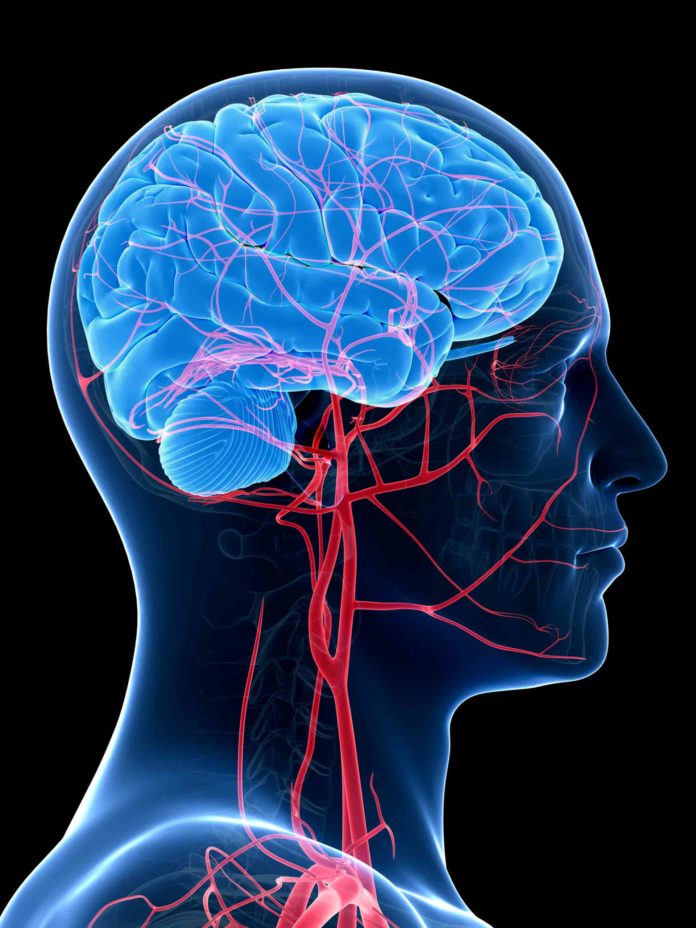Diabetes and Stroke – What’s the link?
Stroke is one of the diseases that is very closely connected to diabetes. In fact, people with diabetes are 1.5 times more likely to be affected by stroke than people without diabetes.
Diabetes can lead to multiple health risks such as high blood pressure, high cholesterol, obesity, atherosclerosis and blood circulation problems. These are also the risk factors that can cause a stroke.
Insulin is the hormone that regulates the glucose in the blood. Insulin moves sugar from your blood into the cells, which will be stored or used for energy. In diabetes, your body cannot use the insulin it makes effectively or does not make enough insulin.
Prolonged exposure to high blood sugar levels or hyperglycemia is now considered a significant factor in the pathogenesis of atherosclerosis (a disease which occurs when plaque builds up inside arteries) in diabetes. Hyperglycemia induces a huge number of changes at the cellular level of the vascular tissue which potentially accelerate the atherosclerotic process.
Atherosclerosis can narrow or block the blood vessels and also lead to the blood clots forming within the blood vessels . This may cut off blood supply to the brain , with the oxygen and nutrients are not received by the brain and damage to brain cells . Overtime, the cells perish, resulting in stroke.
Diabetes on the whole not only results in stroke but can cause serious health problems. There are two types of diabetes. Individuals with diabetes type 1 are unable to produce insulin and people with type 2 will only produce less insulin or become insulin resistant.
Keeping diabetes under control and taking preventive measures is important to lessen the chances of getting a stroke.
What are the different kinds of stroke?
Stroke can be classified into three types:
Ischemic Stroke
This is the most common type of stroke in which the blood vessel that carries blood to the brain gets obstructed by a blood clot in the brain or vessel. Eventually, the brain cells die due to lack of supply in oxygen and essential nutrients. Almost 87% of stroke are of the ischemic variety .
Transient Ischemic Attack or Mini-Stroke
This is similar to an ischemic stroke, also called a mini-stroke. In this type, a temporary blockage in the blood flow to the brain occurs. This kind of stroke usually lasts for a few minutes or fades away in 24 hours. In rare cases, this stroke may not be even felt by the individual.
Hemorrhagic Stroke
This is related to bleeding in the brain which causes the neighbouring brain cells to get damaged and die eventually, resulting in stroke .
What are the risk factors for stroke?
The risk factors for stroke :
- High cholesterol
- Increasing Age
- High blood pressure
- Circulatory problems
- Carotid Artery disease
- Smoking
- Consumption of alcohol
- Sickle cell disease
- Imbalanced diet and sedentary lifestyle
- Diabetes
- Family history of heart disease
- Previous history of heart attacks or stroke
In a few countries race is also a risk factor for stroke. Africans are more prone to stroke than Caucasians according to a survey. Women experience diabetes during pregnancy and the disease prolongs into postpartum. They are more likely to get strokes as they age when compared to men.
How do people with diabetes prevent the chances of getting a stroke?
Although all who have diabetes do not certainly suffer a stroke, the risk factors of having a stroke are higher in them . Below are some ways to prevent stroke despite having diabetes.
- Taking treatment and medication for diabetes: Diagnosing diabetes at an early age is important to avoid the chances of stroke. Early diagnosis will help to keep the condition under control. Hence, it is essential to take advice from the doctor and follow medication as prescribed.
- Eating a healthy diet: Consuming a healthy and nutritious diet reduces the risk of heart diseases and stroke. Foods that are less oily, , fruits, vegetables, whole grains and healthy fat can be added to your everyday diet. These foods are otherwise called heart healthy foods and help to prevent cholesterol and so the stroke.
- Quitting smoking: Smoking causes many serious issues in the body. One needs to mandatorily quit smoking to prevent heart related problems, especially stroke. It also reduces the risk of getting affected by diseases associated with cholesterol, Chronic Obstructive Pulmonary Disease, cancer, etc.
- Exercising everyday: Daily exercise is a must for people having diabetes. It not only reduces the risk of getting a stroke but also keeps the body healthy . Exercising also helps to maintain the weight and reduces the risk of becoming obese, which is essential for diabetic patients.
- Quitting alcohol consumption: Like smoking, alcohol consumption also has serious impacts and can lead to high cholesterol, high blood pressure, obesity, cancer, heart diseases, liver diseases, etc. Hence, drinking alcohol needs to be either stopped completely or limited to reduce the chances of getting a stroke.
- Stress management and lifestyle changes: Changing lifestyle habits and managing stress promotes a healthy life. People with diabetes must practice to keep stress under control always to avoid the chances of stroke and heart related issues.


















